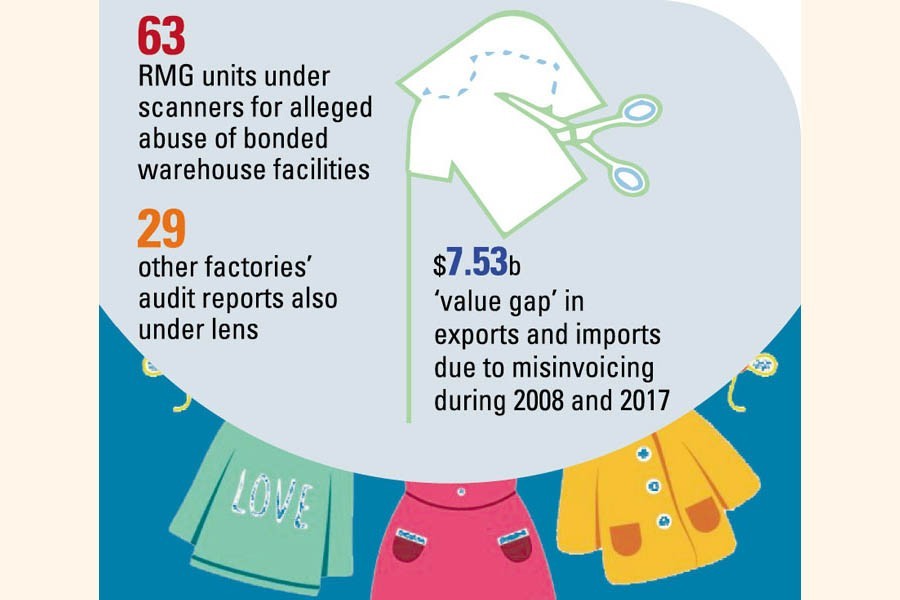The Anti-Corruption Commission (ACC) has launched an investigation into an allegation of money laundering by a section of apparel unit owners using fake documents against exports and imports.
It would scrutinise the details of 63 readymade garment (RMG) units, which were allegedly abusing the bonded warehouse facilities, and examine the audit reports of 29 other factories vulnerable to such abuses.
In a letter, the anti-graft body has recently sought details about the factories from the National Board of Revenue (NBR).
Meanwhile, it formed a three-member committee to investigate into the allegation about laundering US$ 7.53 billion (equivalent to Tk 640 billion) out of the country through trade transactions.
The committee will also probe an allegation against Al Muslim Group that might have siphoned off Tk 1.75 billion producing fake documents. The probe body is expected to submit a report to the government soon.
According to the letter obtained by the FE, the ACC has also sought audit reports of AKM Knitwear Limited, an associate company of Savar-based Al Muslim Group.
The NBR will have to submit the company's audit reports for the fiscal years 2015-16 and 2016-17 as prepared by the bond commissionerate and, customs valuation and internal audit commissionerate (CVIAC).
Earlier, the NBR had listed 29 bonded companies suspected of tax evasion. The ACC has also requested the NBR to share the audit and other reports of those companies for FY2016-17.
On March 3 last year, the Washington-based Global Financial Integrity (GFI) in its report titled 'Trade-Related Illicit Financial Flows from 135 Developing Countries: 2008-2017' said that Bangladesh suffered 'value gap' to the tune of $7.53 billion on average annually from 2008 to 2017 in its exports and imports due to misinvoicing.
According to the GFI, trade misinvoicing is occurred when the importers and exporters deliberately falsify prices in their import and export invoices for illicitly transferring value across the international borders, to evade duties and taxes, launder the proceeds of criminal activity, circumvent currency controls, and hide profits offshore.
The ACC requested the NBR to give records and documents including bill of lading, assessment notices and pass books that exporters submit to the Chattogram Customs House as part of export processing.
The NBR officials said there is no data on loss of revenue through abusing the bonded warehouse facilities.
Earlier, the board had detected 66 apparel factories which were involved with the abuse of the duty-free facility as the customs officials found evidence of selling those items in the open market.
Customs Bond Commissionerates of the NBR also suspended import-export activities of the factories.
The government offered the bonded warehouse facilities to help export-oriented sector stay competitive, said a senior NBR official. Under the facilities, exporters can import raw materials without paying duty and export the finished products to other countries, he said.
Selling the duty-free items in the local market is a punishable offence as it may create uneven competition in the local market, he added.


